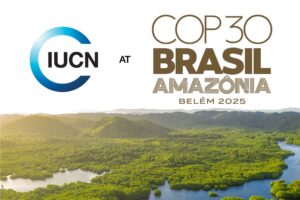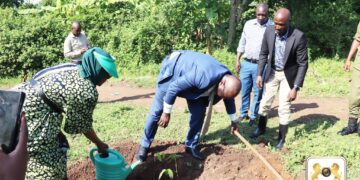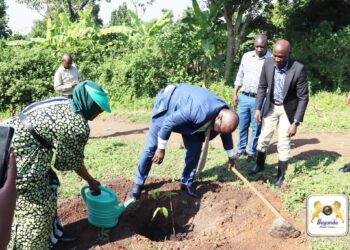OPINION
At the International Union for Conservation of Nature (IUCN) World Conservation Congress in Abu Dhabi this month, participants called for scaling up and aligning resources for nature and climate action, for a decisive shift in global investment, to increase, diversify and align human, technological and financial resources towards the common goals of a climate neutral, resilient and regenerative economy.
They also demanded that financial flows be redirected away from unsustainable exploitation, destruction of wildlife, geodiversity and other natural resources. The world is rallying behind the Abu Dhabi Call to Action for Nature.
Yet today, Uganda stands at a dangerous crossroads where the continued prioritisation of fossil fuel investments threatens to undo decades of conservation gains. Enormous resources have been channelled into fossil fuel projects.
Moreover, these projects are being developed within or adjacent to sensitive ecosystems that harbour globally important wildlife species. Some of them extend into Murchison Falls National Park, a sanctuary that hosts elephants, giraffes, lions, and hundreds of bird species.
Recent satellite imagery and independent assessments have revealed alarming levels of land clearance, road construction, and drilling within and around these protected areas. This has fragmented habitats and disrupted wildlife migration routes. Elephants are being displaced, while endangered birds face growing threats from habitat loss.
Meanwhile, they also cut through wetlands and biodiversity hotspots, including sections of the Murchison Falls–Albert Delta Wetland System, a Ramsar site of international importance.
These wetlands are crucial for water purification, fish breeding, and local livelihoods and their destruction in the name of oil extraction is not only environmentally reckless but also economically short-sighted. While these projects have been justified as pathways to development and energy security, the true cost will be borne by communities, ecosystems and future generations.
Oil extraction may bring temporary revenue, but it risks leaving behind degraded landscapes, polluted water bodies, poor and broken communities, and lost tourism potential all while contributing to global climate change. Uganda must therefore urgently realign its investment priorities.
Financial resources must be redirected towards renewable energy projects such as solar, wind and others that provide energy and create jobs without destroying nature.
Moreso, environmental regulation and enforcement must be strengthened to ensure that all Environmental and Social Impact Assessments are accessible to the public for proper monitoring. In addition, wildlife corridors and buffer zones should be protected and expanded to maintain ecosystem integrity. Uganda’s biodiversity and natural heritage is one of its greatest economic assets
It is important to note that tourism, agriculture, and fisheries all depend on healthy ecosystems. We must stop sacrificing nature for short-term gains or we risk losing both biodiversity and the very foundation of our sustainable development. This is a call to Uganda to heed to this specific call made at the Congress and take it as an opportunity to show that true development is not about short-lived profits, but long-term prosperity for people and nature.
By Vivian Ainembabazi, AFIEGO.








































